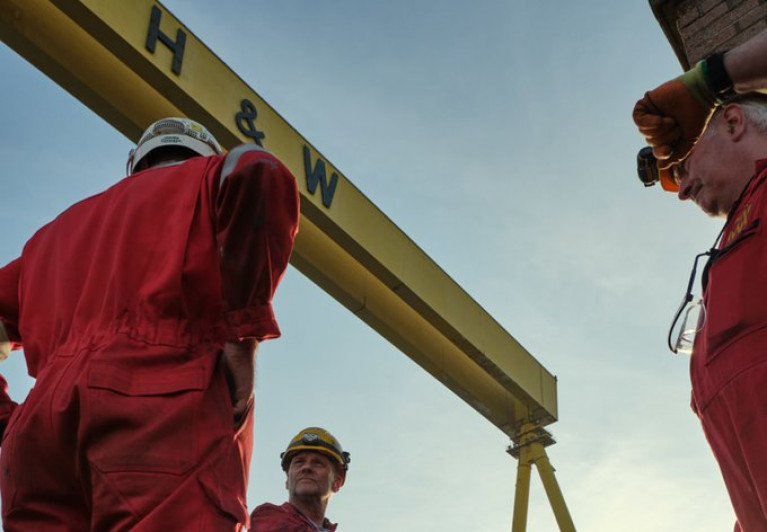Displaying items by tag: New Trading name
Parent Company, InfraStrata to Trade Under New Name of Harland & Wolff Group Holdings plc
The UK quoted company, InfraStrata plc which focuses on strategic infrastructure projects and physical asset lifecycle management, is pleased to announce it has applied to Companies House to trade under the name Harland & Wolff Group Holdings plc.
The parent company has over the past 18 months, proceeded through various phases which have included, the acquisition of assets, significant upgrades to all its facilities, the introduction of state-of-the-art technology. While simultaneously establishing a substantial sales pipeline which now stands at £7.8bn (on an unweighted) and £1.8bn (on a weighted).
The company is now at its final stage of full reactivation (incl. apprenticeships) of all its yards, which involves building a multi-year backlog for its facilities across its five key markets: defence, cruise and ferry, commercial, renewables and energy. The company believes that this change of name will better reflect its ambition in expanding its core business and the significant development of its shipbuilding and fabrication activities.
The organisation’s flagship Islandmagee gas storage project will retain its name, with management remaining focused on obtaining the Marine Construction Licence and Final Investment Decision (FID) thereafter. Whilst the project now has substantially more life expectancy with the need for major volumes of hydrogen storage (subject to regulatory approvals) it is a relatively straightforward technical change to make in a phased approach as the project transitions from gas to hydrogen over time.
Trading in the company's shares on the AIM market of the London Stock Exchange under the new name of Harland & Wolff Group Holdings plc is expected to take effect as soon as a new stock ticker name has been issued by the AIM team.
An application for the stock ticker “HARL” has been made and will be confirmed as soon as the company’s name has been formally changed at Companies House. A further announcement will be made as soon as regulatory permissions have been secured and the new Company stock ticker has been issued.
In order to reflect the change of name, the company's corporate website will change to www.harland-wolff.com. The information required pursuant to AIM Rule 26 will be available at this address.
John Wood, CEO of InfraStrata plc commented: “We are delighted to make this announcement today, signalling the end of upgrade and reactivation phases. With the new national shipbuilding strategy due to be released in the autumn and the government’s ten point plan for a Green Industrial Revolution, we have confidence that the shipbuilding and fabrication business will deliver substantial value to all our stakeholders as we enter this exciting new stage of building our multiyear backlog of projects.
Since acquiring Harland & Wolff in December 2019, we have seen the organisation grow significantly; in August 2020 we reopened what is now known as Harland & Wolff (Appledore) and in February 2021, we acquired two ex-BiFab sites based in Scotland - now renamed Harland & Wolff (Arnish) and Harland & Wolff (Methil) respectively giving us one of the largest fabrication footprints dedicated to our core markets, in addition to two of the largest drydocks in Europe at Harland & Wolff (Belfast) which at 80% capacity could give sales of in excess of £500m per annum when operational efficiencies have been achieved.
This is a natural progression in building and further developing the Harland & Wolff brand, our commitments to high-quality jobs across our five markets including the 34 apprenticeships recently announced as well as providing socio-economic investment into local, regional, and national communities.”





























































